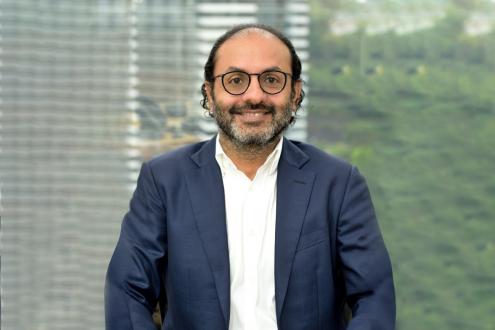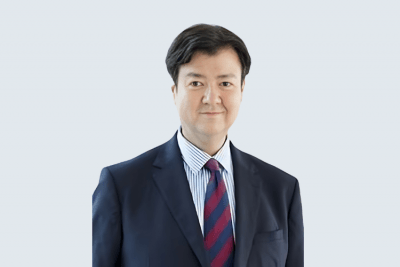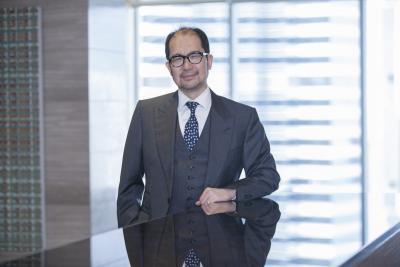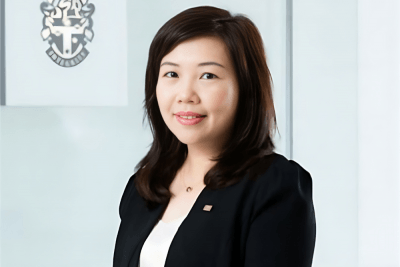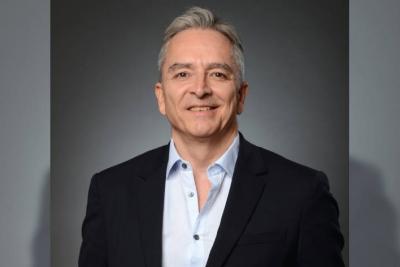Wealth Solutions & Wealth Planning
Qineticare Founder Feisal Alibhai on Encouraging a Truly Integrative Approach to Health & Wealth
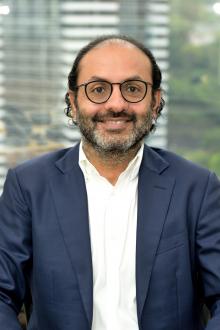
Jul 8, 2022
Feisal Alibhai is the Founder and Integrative Head of Hong Kong headquartered Qineticare, which he says is the world’s first family health office. He launched the business back in 2013 with a mission to empower individuals and families through an integrative journey to live in harmony and create enduring impact. Feisal’s drive came initially from his own healthcare crisis when at the age of just 35 in 2004 and as a third-generation family business entrepreneur with over 10,000 employees in 15 countries, he was diagnosed with stage three cancer. He was suddenly faced with leaving this world, his wife and their two young sons. But he took dramatic steps which led him to the creation of Qineticare and today, at the age of 53, he is as forward focused and as energised as he has ever been. Moreover, Qineticare has grown dramatically, turbocharged also by the dramatic impact of the global pandemic since early 2020. Hubbis met him in early June for what was a quite fascinating conversation.
Hubbis: What is Qineticare and why did you create it?
My vision is that the complexity of today’s modern lifestyles, family dynamics and healthcare systems require a multi-dimensional perspective. Today, Qineticare’s extensive global team of healthcare and well-being experts are helping wealthy clients through a journey of self-discovery and integrating key insights related to their health and wellbeing, thereby enabling them and their families to live in harmony and create enduring impact.
When I was diagnosed with cancer, to maximise my odds of survival, I turned to functional medicine, integrative doctors and beyond, building a team of world-class experts to support me. In June 2005, the cancer was declared to be in remission, and I thought I had overcome the worst that life could throw at me. I then received what felt like the harshest blow of all, when my wife asked for a divorce.
Looking back, I suddenly recognised all the warning signs I had missed and then spent the next few years helping family and friends to prioritise what matters most, and it is out of all that Qineticare was born, and we have not looked back since.
We are the world's first family health office. Just like family offices manage wealth, we manage health and wellbeing for families, for family businesses and family offices.
Hubbis: Can you drill down further into the proposition and the offering for our readers?
Feisal: We take a multi-dimensional approach, so we look at the human being, the human system, and then the family system.
The human system means the physical perspective, the mental-emotional perspective, and the relational perspective. Within the physical, we look at nutrition, fitness, sleep, digestion, brain health, epigenetics, genomics, and drivers of behaviour.
The mental-emotional aspects center on thoughts and clarity, and what's happening in terms of emotions and feelings. We look at beliefs and patterns, personal, and intergenerational, because there is a lot of bleed-through that is happening, which, unfortunately, is not serving many families.
And the third dimension is the relational dimension, which starts with self-love, self-care, the relationship with yourself, the relationship with your loved ones, the extended family, and the community at large. We look at whether the client is living in alignment between values, talents, and aspirations or living based on somebody else's obligations or expectations.
All of that is the human system. And then you have the family system where we focus on the family dynamics in terms of communication, relationships and harmony, which, after all, is what most families say they would like.
Hubbis: Who initiates these conversations, and how do you progress matters with clients?
Feisal: There are many different motivators. Every individual is at a different stage of their lives. Some want to help overcome mental or physical challenges.
Some want to plan for their families’ futures. Some people want to help improve the quality of their relationships, as they strive to live as a family in harmony. Some might have sold their businesses and want to focus on their futures, prepare for succession, while others are facing up to empty nesting, or perhaps moving from active management to advisory roles.
Others have more difficult challenges to address, such as a life-threatening illness, or marital or relationship crisis, or other family crises.
Hubbis: What is the business today, and what are your plans?
Feisal: We support individuals and families on their specific journey. For a lot of our elder clients, we have physical mandates where we take care of their physical health and wellbeing. We might begin with an 8- to 12-week assessment and then move to 12 to 15-month tailored pathway for some of the families to support them further on their journey.
We have a broad range of medical and support expertise in the teams that help clients, from life coaches to psychotherapists to functional medicine experts and intuitive medicine experts. We have people specialised in chronic illness, but again, both doctors and beyond medicine.
We have people specialised in family dynamics, we have people specialised in parenting, we have people specialised in nonverbal communication. Everything is science based and then we build on top of that. We have access to over 3000 peer-reviewed doctors and 25 non-medical experts around the world in our core team. They are in Australia, New Zealand, Hong Kong, Dubai, Spain, Italy, Switzerland, India, and the US and all bring their different specialties to support our clients.
As we are a business, we have the typical infrastructure to handle clients, accounts and all those vital functions.
Hubbis: How does all this align with the challenges these well-to-do clients face around family estate planning, succession and legacy?
Feisal:
The reality is that families might create family governance documents, constitutions, the family council, but if you're not addressing the core issues, or the core elements of the family dynamics, those documents are just documents that do not really connect to the family and family members.
That in turn means that as the world faces trillions of dollars of inter-generational wealth transfer in the years ahead, it's a big risk if there's no alignment and harmony. I feel a lot of the private wealth bankers and advisors are not thinking this through; they really need their clients to be healthy as well as wealthy. They need them in good physical states, sharp in terms of mental acuity, and to be able to make good decisions. Clients get older, and all these challenges need to be addressed.
We do a lot of work amongst the different generations of these wealthy families, encouraging a lot of communication that might not otherwise take place. We help them open up to genuinely connect and communicate their ideas and their feelings. In so many instances, there is a major chasm between these generations, they cannot relate to each other, and they struggle to communicate. We help open these doors, bridge these gaps and clear the air. And that is incredibly healthy on all levels.
In terms of families who are coming in for help around succession, we really work with the families to clear out the toxicity, the misunderstandings, the unaddressed, the unspoken issues between the first, second and perhaps third gens. We like to say that this clears the waters so that the younger generations do not immerse themselves in muddied waters. Instead, they are heading into a beautiful, fresh sea.
Hubbis: What are your key priorities today?
Feisal: First, to continue educating so that what we do, whether we do it or somebody else does, becomes a default for every family to have access to, just like you have access to your lawyer, your banker, and your doctor, you also have access to a team that can support you need support from a relational or mental-emotional perspective. We will continue to advocate, speak, write articles, and to conduct interviews.
We want to expand more, especially in the APAC region. We want to work with more families in the region on all these different pieces, whether it's succession, whether it's communication, in short, all of those pieces.
And the third mission is to partner with some of the largest family advisors to work together in tandem to look at what we call the continuity audit and be part of that continuity audit for families when they look at their risk profile.
Hubbis: What would you offer as your closing comments for our readers as you reach out to the broader wealth management community?
Feisal: The next generations have a different approach towards business, towards investments, and towards sustainability. Their value systems are different from what came before, and more attuned to the world ahead.
But without an ability to have open communication and to clear the air of any misunderstood or misconstrued assumptions around the family and wealth and the future, the older and younger generations of these wealthy families so often risk falling apart, sometimes irreparably. These issues must be addressed for continuity and for the continuation of the family’s integrity and their wealth for the future. If they achieve this, their mental and physical health will be better.
The other thing is transparency. The next-gens are asking for a lot of transparency, and the older generation is concerned in terms of how much transparency to offer, and when and how to provide that, if at all. Education and communication can, again, help bridge these uncertainties.
We need to break down judgements, expectations and impositions between generations. We need to open up and clarify, to support people to avoid entitlement, to not make assumptions about what is expected and what is going to be provided, both top-down and bottom-up within these families.
It is those types of expectations that can so often make and break these families. We need fluidity, understanding, and alignment rather than the confusion of expectation and the ensuing judgement. Qineticare is there to support families through all these challenges and beyond.”
Getting Personal with Feisal
Feisal was born in the Democratic Republic of Congo (DRC), and was educated at school in Belgium and the Congo, and then Canada. He attended the Wharton School of Business in the US.
In 2004, at the age of 35 he was managing the family business in 15 countries, as one of the largest textile and clothing groups in Eastern Europe at the time, and one of the largest licensees to Disney, Warner, and Cartoon Network in Eastern Europe.
“We operated in Eastern Europe countries such as Hungary, Czech Republic, Poland, and Romania, and we specialised in war-torn Africa such as Angola, Congo, Sudan, Burundi, all the ex-Civil War countries,” he reports. “I had a very exciting entrepreneurial venture and success from the age of 23 after my studies. A highlight was also helping charitably during those time with the Aids crisis in Africa, supplying support to mothers and children who were affected unwittingly.”
And that was when he was diagnosed with Stage 3 cancer, 18 years ago. He was declared to be in remission in June 2005, but then suffered another major setback in his personal life, with his separation from his wife finalised in 2016. But he has bounced back again from that. Moreover, his two sons – toddlers when he was first diagnosed with the cancer – are now 19 and 21 and doing very well.
He lives in Hong Kong and his spare time might be spent playing tennis, trekking or swimming, which he only learned to do during the pandemic lockdown. “My vices today are chocolate and good restaurants, the loves of my life are chocolate-coated almonds from Switzerland and my sons,” he shares.
Life is full of ups and downs, he says, and another down was the fairly recent end of an intimate relationship a few months ago, but he says he remains optimistic, and hopes to again find someone to share his years ahead with again.
“For the moment,” he quips, “I can say my current new love is the Etxebarri restaurant in San Pellegrino, Spain, which is truly remarkable. The food is prepared on wood fires, even the ice cream! We celebrated a friend’s 50th there recently with a 12-course meal that took five hours and was truly sensational.”

Founder & Integrative Head at Qineticare


